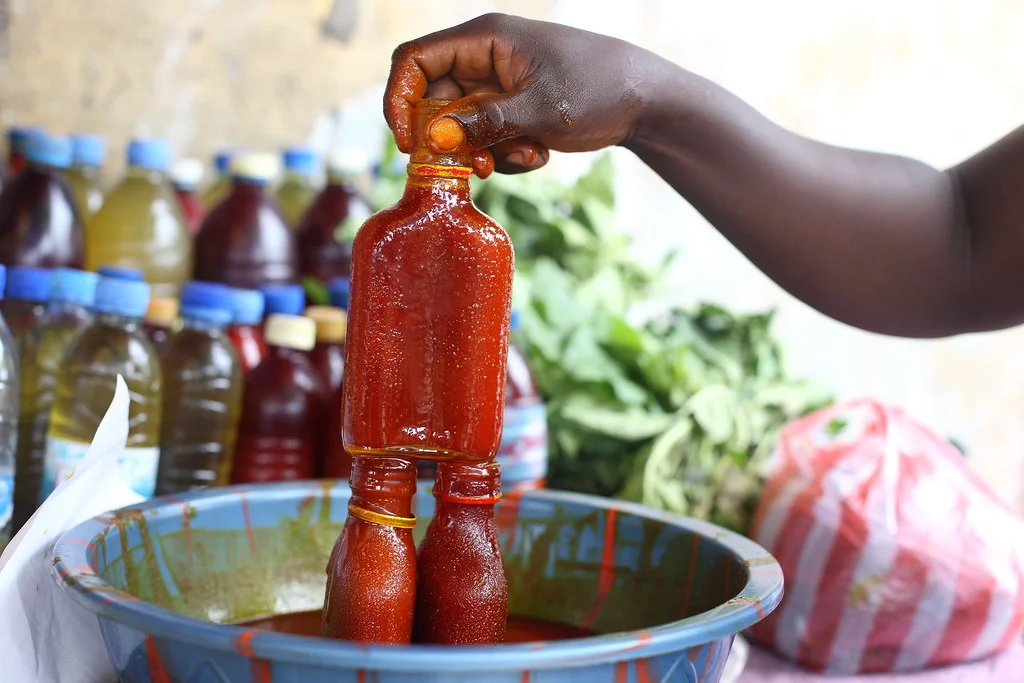In 2021, the Ghana Food and Drugs Authority (FDA) conducted routine market surveillance, revealing that 30% of palm oil samples from Ghanaian markets failed the nationwide Zero Sudan IV dye test, a significant rise from 7.3% in 2018, per. The FDA sampled 306 palm oil products in October 2021 from major markets, including 10 in Greater Accra, with 70 samples testing positive for Sudan IV, a banned chemical, per. Greater Accra recorded the highest failure rate at 60.8%, with markets like Dome and Mallam Attah showing 100% failure, while the Upper West Region had no contaminated samples, per.
Health Risks and Regulatory Ban
Sudan IV, used in textiles, leather, plastics, and cosmetics, is toxic and banned as a food additive by the FDA and the FAO/WHO Codex Alimentarius due to health risks, including hyperactivity in children, severe allergies, hives, migraines, and cancer, per. Despite extensive public education, “producers and Ghanaian traders continue to use this chemical as an enhancer in palm oil due to consumers’ preference… for ‘redness,’” per. This practice persists to mask poor-quality palm oil, driven by consumer demand for vibrant color, per.
FDA’s Response and Enforcement
The FDA responded with arrests following the October 2021 sampling and launched a rigorous public education campaign targeting markets like Mallam Attah and Dome in Accra, per. “Traders whose palm oil products fail the test will be made to face the full rigors of the law,” the FDA stated, per. The agency is also developing a traceability system for agro-products to enhance food safety and protect public health, per. This system aims to improve accountability in the palm oil value chain, per.
Historical Context and Ongoing Challenges
The issue of Sudan IV contamination in Ghanaian palm oil has persisted since at least 2005, when exports to the UK were banned due to detected dye, per. A 2015 FDA test revealed 98% contamination in samples from Accra and Tema, indicating a long-standing problem, per. Despite a drop to 7.3% in 2018, the 2021 surge to 30% underscores ongoing challenges, per. The FDA’s intensified efforts, including collaboration with market queens and law enforcement, aim to curb this practice, per.
Economic and International Implications
The persistent use of Sudan IV threatens Ghana’s palm oil exports, particularly under the African Continental Free Trade Area (AfCFTA) and to markets like the EU, which imposed stricter controls in 2022 due to high non-compliance rates, per. Palm oil, a staple in Ghanaian cuisine and a global commodity (77% used for food), is critical to the economy, per. The FDA’s initiatives, including ongoing sampling and a planned traceability system, seek to restore consumer trust and safeguard Ghana’s $2 billion palm oil industry, per 2021 industry estimates.






